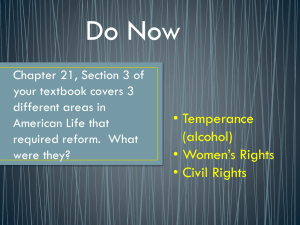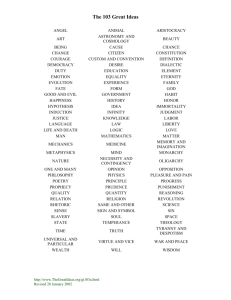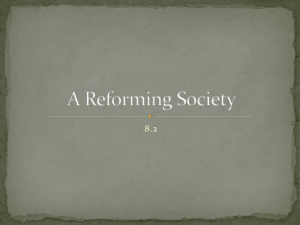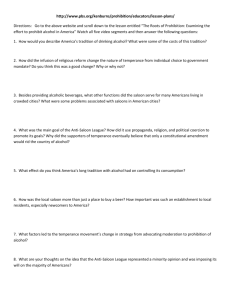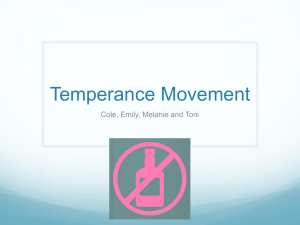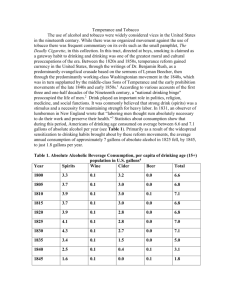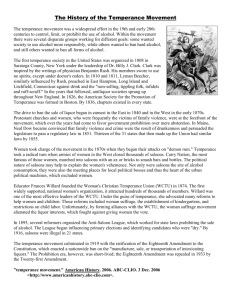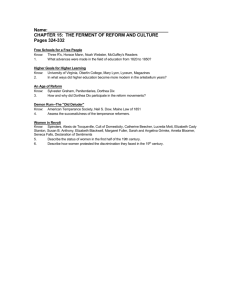Temperance Movement
advertisement
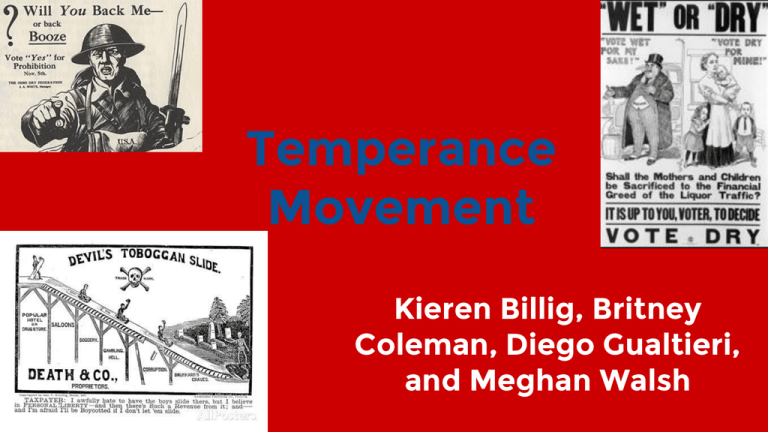
Temperance Movement Kieren Billig, Britney Coleman, Diego Gualtieri, and Meghan Walsh What is Temperance? • Temperance is defined as abstinence from alcohol. • The temperance movement began to take effect on government in the 1820s • It was created in an effort to stop the sale and consumption of alcohol • Resulted in bootlegging • Bootlegging - smuggling of alcohol into the U.S. Who is Lyman Beecher? • Presbyterian Minister • Lived from October 12th,1775-January 10th,1863 • Founded American Temperance Society (ATS) with other Boston Ministers • Therefore a supporter of temperance American Temperance Society(ATS) • Established February 13th, 1826 in Boston Massachusetts by ministers of Boston • After 5 years it had spread throughout the U.S. with over 170,000 members and 2,200 chapters of support • All supported by people who opposed the consumption of alcohol • Pushed so much resulting in acts such as Massachusetts prohibiting sale of alcohol in amounts less than 15 gallons (1838) Temperance Legislation • The temperance movement is a social movement against the consumption of alcoholic beverages • The people ( mainly women) blamed all the problems on alcohol • 1830-1840 • Movement was encouraged by the churches T.S Arthur • He was a famous author in the 19th century • His famous novel about temperance is Ten Nights in a Bar Room and What I Saw (1854) • His novel demonized alcohol and helped pushed the temperance movement in the right direction Neal Dow & the Maine Laws • Neal Dow was known as the “Father of Prohibition” and “Napoleon of Temperance” • Mayor of Portland, Maine • Supported the Maine Law of 1851, which prohibited the manufacture and sale of liquor • The Maine Law was the first legislature to try and put prohibition into effect Washingtonians • Focused on the individual alcoholic rather than society's relationship with alcohol • Founded by six alcoholics • William Mitchell • David Hoss • Charles Andersen • George Steer • Bill M’Curdy • Tom Campbell “Cold Water Army” • Expression used to describe the action of taking the pledge to no longer drink alcohol • Was a children's temperance group • Many songs were sung to bring people over to the cause, and to describe the roles males and females had in the movement
